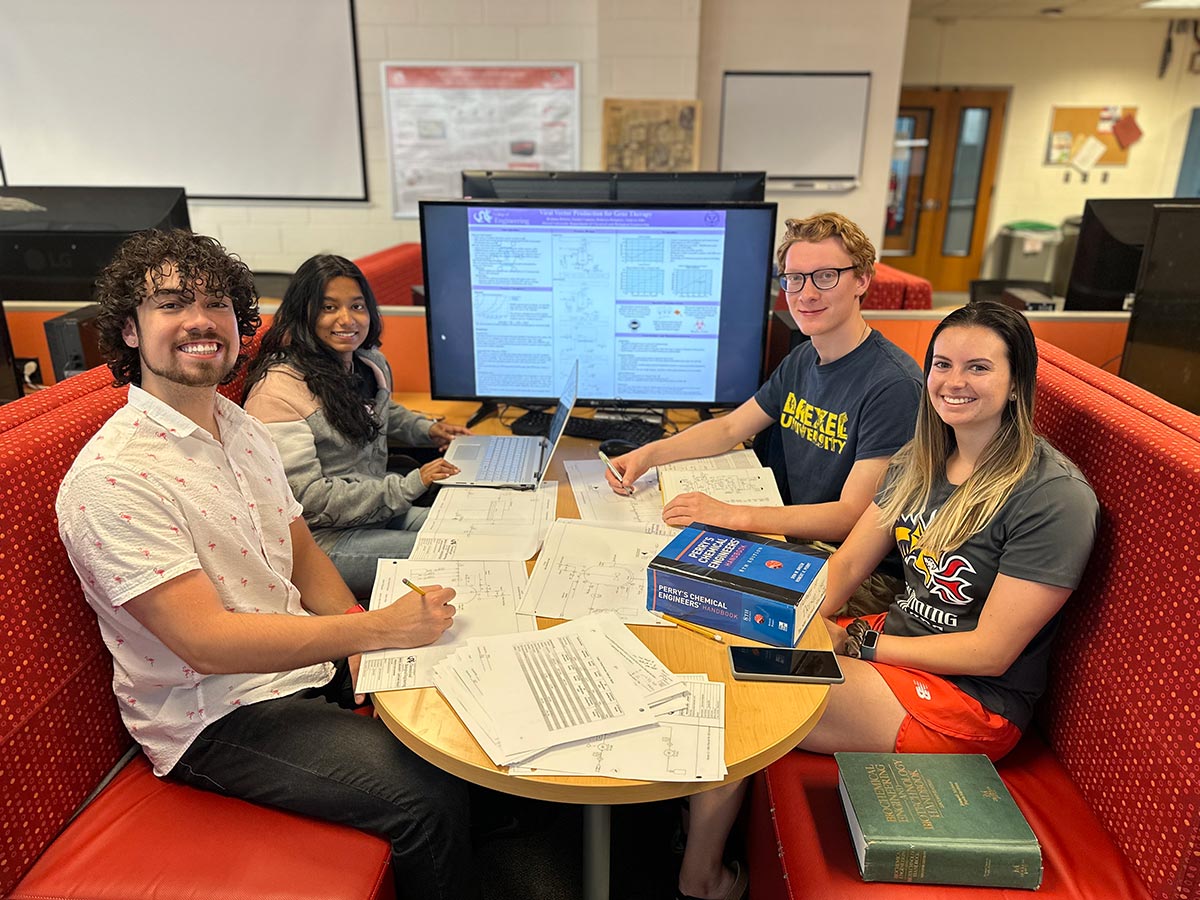
In the realm of gene therapy and genetic engineering, viral vectors have
emerged as indispensable tools for delivering genetic material to cells.
These modified viruses possess the ability to efficiently transfer specific
genes or therapeutic agents, offering hope for treating genetic disorders
and other diseases. The technology was recently used to help Johnson &
Johnson create its COVID-19 vaccine.
As the field advances and the demand for viral vectors increases, a pressing
challenge arises: the need to produce the vectors in bulk quantities. To
meet the growing demand, a team of Drexel chemical engineering students are
exploring a conceptual biochemical process that could make up to 10,000
doses per batch.
The team — Rebecca Demaree, Andrew Ellis, Josiah Cumens, and Reshma Brown —
have been collaborating since early in their Drexel careers. Brown and Ellis
met in their first year as residents of Millenial Hall, and Damaree and
Cumens met in an early engineering class. Through co-ops, vacations and
study sessions, the quartet found shared academic interests.
“All four of us have a strong passion for pharmaceuticals due to our co-ops
and desire to help the world,” Ellis shared. “When we saw viral vectors as
an option for senior design, we knew that this team had all the knowledge
and expertise to exceed in putting together a successful process.”
A key challenge in developing viral vectors is purification. In order to
protect the patient from unwanted immune responses, the material created during cell growth must be sent
through multiple purification steps to achieve high purity, but current
methods sacrifice yield in these steps. The team integrated membrane filtration into the process to clear up cell debris and concentrate the solution before moving on to chromatography, which further purifies the mixture.
The team say that their prior co-op experience helped them approach the problem from multiple angles: Demaree and Brown
had chemistry and process knowledge after working at Merck and Bristol Myers
Squibb while Ellis and Cumens’ experience at Merck gave them insight into
scaling, manufacturing and finance.
“Since viral vectors are such a new technology, most of the research being
completed is still proprietary. Research that was available wouldn’t always
directly match our needs and we had to rely on our own knowledge to
extrapolate the information to fit into our design,” Demaree said. “We
relied heavily on experience we had gained throughout co-ops. This project
would have been incredibly difficult if we did not have this
industry-specific background knowledge.”
Despite the challenges, the team remains optimistic about the future of
their project. Their research shows that production of viral vectors at
scale is possible and, if a company has the resources, can be done at a
reasonable cost. The group also hopes that their work can be a starting
point for future Drexel chemical engineers.
“We hope the department and future students can take this project further by
supporting biological engineering projects,” Brown said. “The Philadelphia
area is quickly becoming a pharmaceutical and biotechnology hub, and Dragons
can become leaders in innovation.”